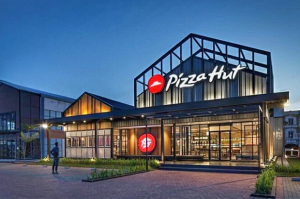Shrinking Indonesian middle-class signals challenges for consumer growth, job creation
Indonesia's middle class, once the backbone of the country's economic growth, is showing signs of strain, leaving many businesses and policymakers concerned about the future, a report by Financial Times revealed.
The number of middle-class Indonesians has fallen sharply over the past few years, from a peak of 60 million in 2018 to about 47.9 million in 2024. This decline reflects a broader economic shift.
More people are falling into the "vulnerable" or "aspiring middle class" categories, indicating a reversal in economic progress. The middle class now accounts for just 17 percent of the population, down from 23 percent in 2018.
This economic strain has been attributed to several factors. The most pressing is the lack of formal employment opportunities, which has resulted in a rise in the informal sector, where jobs tend to be poorly paid and unstable.
According to government data, informal sector employment increased from 57 percent to 59 percent between 2018 and 2023. Chatib Basri, a former finance minister, pointed out that most of the new jobs created in recent years have been informal, contributing to the declining consumer spending power.
Economists believe the decline of the middle class is closely tied to the underdevelopment of high-paying industries, particularly in manufacturing. Indonesia has long depended on its commodities sector, focusing on exports like nickel, coal, and palm oil.
While these industries have generated investment, they have not produced the kinds of formal, well-paid jobs necessary to support a thriving middle class.
Limited focus
The country’s limited focus on manufacturing has also hindered its ability to compete with regional neighbors like Vietnam and Malaysia, which have built more robust manufacturing sectors. As a result, Indonesia has struggled to capitalize on the global shift in production away from China.
Experts agree that the key to restoring middle-class prosperity lies in creating more formal, well-paid jobs. Efforts to attract foreign direct investment (FDI) and improve the investment climate are seen as critical steps.
However, many analysts argue that simply offering welfare measures will not be enough to address the problem. Chatib Basri emphasized the importance of focusing on job creation through FDI, particularly in export-oriented sectors.
This shift in the middle class’s economic standing is already having consequences. Consumer spending has slowed, with deflation observed in recent months and major retailers struggling to meet sales targets.
Impacts
The automobile industry, in particular, experienced a 14 percent drop in car sales last year, partly due to weaker purchasing power.
Recent reports, including a significant decision by Pizza Hut’s Indonesian franchisee to close 20 stores, underline the challenges that come with a shifting consumer landscape.
Boy Lukito, CEO of Sarimelati Kencana, the company operating Pizza Hut in Indonesia, noted a growing trend of cautious spending among the middle class.
Businesses like Pizza Hut Indonesia are adapting by offering promotions and diversifying their offerings, but the fundamental challenge remains: middle-class Indonesians are more focused on saving than on spending.
The situation is a stark reminder that Indonesia’s economic growth cannot rely solely on its natural resources and the expansion of its commodities sector. A more sustainable and inclusive growth model will require significant investments in formal sector jobs, technological innovation, and manufacturing, alongside efforts to boost the competitiveness of the economy.
As the country looks to meet ambitious growth targets in the coming years, addressing the challenges faced by the middle class will be crucial. Without structural reforms and the creation of higher-paying, stable jobs, Indonesia may struggle to achieve its economic goals and secure a prosperous future for its people.
Tag
Already have an account? Sign In
-
Start reading
Freemium
-
Monthly Subscription
20% OFF$29.75
$37.19/MonthCancel anytime
This offer is open to all new subscribers!
Subscribe now -
Yearly Subscription
33% OFF$228.13
$340.5/YearCancel anytime
This offer is open to all new subscribers!
Subscribe now







